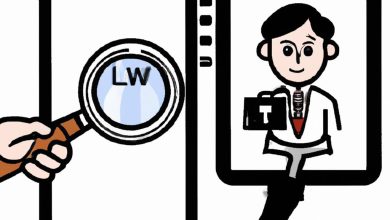Lawyer for Small Business: Ensuring Success and Protection

Starting and running a small business can be an exhilarating journey filled with endless possibilities. As an entrepreneur, you pour your heart and soul into your venture, striving for success every step of the way. Amidst the excitement, it is crucial to recognize the importance of having a lawyer by your side. A lawyer for small businesses serves as a trusted advisor, offering legal expertise and guidance to ensure your business thrives while navigating the complexities of the legal landscape.
1.1 Importance of a Lawyer for Small Businesses

Running a small business presents numerous legal challenges that can impact its growth, reputation, and overall viability. Without proper legal guidance, you may find yourself vulnerable to costly mistakes, disputes, and legal repercussions. That’s where a lawyer specialized in small business matters becomes indispensable.
A skilled lawyer understands the intricacies of business law and can assist you in various areas such as business formation, contract drafting, intellectual property protection, employment law compliance, and tax matters. By having a lawyer on your side, you can proactively address legal issues, minimize risks, and ensure your business is operating within the boundaries of the law.
1.2 Benefits of Hiring a Lawyer for Small Businesses
The benefits of hiring a lawyer for your small business are multifaceted and can significantly impact your success. Firstly, a lawyer provides you with peace of mind, knowing that you have a legal expert to turn to for advice and support. Their knowledge and experience can help you make informed decisions, avoiding legal pitfalls that could jeopardize your business.
Moreover, a lawyer can assist you in setting up the proper legal structure for your business, whether it’s a sole proprietorship, partnership, or incorporation. They can guide you through the legal requirements, helping you choose the structure that aligns with your goals and offers the most favorable tax implications.
Additionally, a lawyer can review and draft contracts and agreements to protect your interests and ensure favorable terms. They can help you navigate complex employment laws, ensuring compliance with regulations and protecting your employees’ rights. Furthermore, they can safeguard your intellectual property through trademark registrations, copyrights, and patents, preserving your unique products or services.
In conclusion, hiring a lawyer for your small business is not just a wise investment; it is a necessity. Their legal expertise and guidance are vital for overcoming legal obstacles, safeguarding your business, and positioning it for long-term success. Don’t underestimate the importance of having a knowledgeable lawyer by your side. Remember, success loves preparation, and a lawyer can help you prepare for any legal challenge that comes your way.
Stay tuned for the next section, where we will delve deeper into the role of a lawyer for small businesses and explore the various areas they can assist you with. Together, let’s equip your business with the legal foundation it deserves.
Understanding the Role of a Lawyer for Small Businesses
Starting and running a small business involves navigating numerous legal intricacies. A lawyer specializing in small business matters plays a crucial role in providing the necessary expertise and guidance to ensure your business operates smoothly within the boundaries of the law. Let’s explore the various areas in which a lawyer can assist your small business:
2.1 Legal Expertise and Guidance
A lawyer brings invaluable legal expertise to the table, helping you understand the complex legal landscape and making informed decisions. They stay updated with the latest laws and regulations, ensuring your business remains compliant and minimizing the risk of legal disputes. With their guidance, you can proactively address potential legal issues and protect your business’s best interests.
2.2 Assistance with Business Formation and Legal Structure
Choosing the right legal structure for your small business is essential for liability protection, tax advantages, and operational efficiency. A lawyer can explain the options available to you, such as sole proprietorship, partnership, limited liability company (LLC), or corporation. They can guide you through the process of registering your business and ensure compliance with local, state, and federal requirements.
2.3 Contract and Agreement Drafting and Review
Contracts and agreements are the foundation of any business relationship. A lawyer can assist you in drafting clear and comprehensive contracts tailored to your specific needs. They can review contracts proposed by other parties, identifying any potential risks or unfavorable terms. By having a lawyer review your contracts, you can protect your interests and avoid costly legal disputes down the line.
2.4 Intellectual Property Protection
Intellectual property (IP) is a valuable asset for small businesses. Whether it’s trademarks, copyrights, or patents, protecting your IP is crucial to safeguard your unique ideas, products, or services. A lawyer can help you navigate the intricacies of IP law, ensuring proper registration and enforcement of your rights. They can also assist in handling IP infringement cases, defending your business’s valuable assets.
2.5 Employment Law Compliance
Employment laws can be complex and ever-changing. A lawyer specialized in small business matters can help you navigate the legal requirements related to hiring, employee contracts, workplace policies, and compliance with anti-discrimination laws. They can guide you in creating a fair and legally compliant work environment, minimizing the risk of employment-related disputes.
2.6 Assistance with Tax Matters
Tax matters can be overwhelming for small business owners. A lawyer with expertise in tax law can provide guidance on tax planning strategies, deductions, and credits available to your business. They can help you navigate tax compliance issues and represent your business in the event of an audit. By working with a lawyer, you can ensure your business remains in good standing with tax authorities.
Understanding the role of a lawyer for small businesses is crucial for the success and protection of your venture. In the next section, we will explore how to find the right lawyer for your small business, ensuring you have a trusted advisor by your side.
Finding the Right Lawyer for Your Small Business
When it comes to finding the right lawyer for your small business, it’s crucial to make an informed decision. The legal counsel you choose will play a significant role in the success and protection of your business. Here are some essential considerations and steps to help you find the perfect match:
3.1 Considerations when Choosing a Lawyer
Before embarking on your search for a lawyer, take some time to reflect on your specific needs and requirements. Consider the nature of your business, the industry you operate in, and the areas of law that are most relevant to your operations. This self-assessment will help you identify the expertise and experience you need in a lawyer.
Additionally, think about your budget and the level of legal support you anticipate requiring. Some businesses may only need occasional legal advice, while others may require ongoing assistance. Understanding your budget and legal needs upfront will help you narrow down your options.
3.2 Researching and Evaluating Potential Lawyers
Once you have a clear understanding of your requirements, it’s time to research and evaluate potential lawyers. Start by searching online and exploring law firm websites. Look for lawyers or firms that specialize in small business matters and have a proven track record of success.
Read client testimonials and reviews to gain insights into the experiences of others who have worked with the lawyer or firm. Pay attention to any red flags or consistent negative feedback.
3.3 Seeking Referrals from Trusted Sources
Word-of-mouth recommendations can be invaluable when searching for a lawyer. Reach out to fellow business owners, colleagues, or industry associations for referrals. These trusted sources can provide firsthand insights into the quality, reliability, and responsiveness of the lawyers they have worked with.
3.4 Interviewing Potential Lawyers
Once you have a shortlist of potential lawyers, schedule interviews or consultations to assess their suitability further. Prepare a list of questions in advance to ensure you cover all relevant aspects. Ask about their experience working with small businesses, their approach to communication, and their fee structure. Pay attention to how well they listen, their level of enthusiasm, and their ability to explain complex legal concepts in a clear and understandable manner.
Remember, choosing the right lawyer is a critical decision for your small business. Take the time to conduct thorough research, seek recommendations, and interview potential candidates. By finding a lawyer who understands your business and shares your vision, you can establish a productive and long-lasting partnership that will contribute to the growth and success of your small business.
In the next section, we will explore cost-effective legal solutions for small businesses, helping you maximize the value you receive from your legal representation.
4. Cost-Effective Legal Solutions for Small Businesses
As a small business owner, managing your finances is crucial for sustainable growth. Understanding how to obtain cost-effective legal solutions is paramount to ensure your legal needs are met without breaking the bank. Let’s explore some strategies that can help you navigate the world of legal fees and maximize value for your small business.
4.1 Traditional Hourly Billing vs. Alternative Fee Structures
Traditionally, lawyers bill their clients based on hourly rates, which can quickly accumulate and become a burden for small businesses. However, there are alternative fee structures that can provide more cost certainty and flexibility. For example, some lawyers offer fixed-fee arrangements for specific services, allowing you to know the cost upfront. This can be particularly useful for routine legal matters like contract reviews or trademark registrations.
Another alternative is a retainer agreement, where you pay a predetermined monthly fee for ongoing legal support. This can be advantageous if you anticipate needing regular legal advice or assistance. By exploring these alternative fee structures, you can align your legal expenses with your budget and have greater control over costs.
4.2 Negotiating Legal Fees and Establishing a Budget
When hiring a lawyer, don’t hesitate to discuss fees openly and negotiate whenever possible. Many lawyers are willing to work within a client’s budget, especially for small businesses. Be transparent about your financial limitations and explore options for fee reductions or payment plans. Remember, a lawyer who understands your business’s constraints and is invested in your success will be more likely to find a mutually beneficial arrangement.
To effectively manage your legal expenses, establish a budget specifically for legal matters. Consider the types of legal services you may require and allocate funds accordingly. By setting aside a portion of your budget for legal fees, you can proactively address legal needs without compromising the financial stability of your business.
4.3 Utilizing Legal Technology and Resources
Technology has revolutionized the legal industry, providing access to affordable legal resources and tools. Take advantage of legal technology platforms that offer templates, contract generators, and legal research resources. These tools can streamline repetitive legal tasks and reduce the need for extensive lawyer involvement, ultimately saving you time and money.
Additionally, explore free or low-cost legal resources available online. Many government websites, legal aid organizations, and bar associations offer valuable information and guidance on various legal topics. While it’s important to consult a lawyer for complex or specific legal matters, leveraging these resources can provide a foundation of knowledge and help you make informed decisions.
In conclusion, obtaining cost-effective legal solutions for your small business requires careful consideration and proactive measures. By exploring alternative fee structures, negotiating legal fees, establishing a budget, and utilizing legal technology and resources, you can effectively manage your legal expenses while still receiving the necessary legal support.
Stay tuned for the upcoming sections, where we will discuss common legal issues faced by small businesses and the importance of finding the right lawyer for your specific needs. Remember, strategic legal planning is the key to safeguarding your business and achieving long-term success.
5. Common Legal Issues Faced by Small Businesses
Running a small business involves navigating a myriad of legal challenges that can arise at any moment. Understanding and proactively addressing these common legal issues is essential for the success and longevity of your business. Let’s explore some of the most prevalent legal hurdles faced by small businesses and how a lawyer can help you overcome them.
5.1 Contract Disputes and Negotiations
Contracts are the lifeblood of any business, outlining the rights and obligations of parties involved. However, disputes can arise when expectations are not met, terms are misunderstood, or one party fails to fulfill their obligations. In such situations, a lawyer can step in and provide guidance to resolve contract disputes through negotiation, mediation, or, if necessary, litigation. They can also draft clear, comprehensive contracts that protect your interests and minimize the risk of future disputes.
5.2 Employment-Related Issues
Hiring and managing employees is a crucial aspect of running a small business. However, employment-related issues can be complex and time-consuming. A lawyer well-versed in employment law can assist you in drafting employment contracts, ensuring compliance with labor laws, and addressing issues such as wrongful termination, discrimination, or harassment claims. They can also provide guidance on employee classification, wage and hour laws, and workplace safety regulations, helping you maintain a harmonious and lawful work environment.
5.3 Intellectual Property Infringement
Protecting your intellectual property is vital for safeguarding your business’s unique products, services, or brand. Intellectual property infringement can occur through unauthorized use, copying, or counterfeiting, jeopardizing your competitive advantage and brand reputation. A lawyer specializing in intellectual property can help you register trademarks, copyrights, and patents, and enforce your rights by taking legal action against infringers. They can also assist in conducting clearance searches, drafting licensing agreements, and providing advice on avoiding infringement disputes.
5.4 Regulatory Compliance Challenges
Navigating the ever-changing landscape of regulations and compliance requirements can be overwhelming for small businesses. Failure to comply with applicable regulations can result in penalties, fines, or even the closure of your business. A lawyer can help you understand and meet the regulatory obligations specific to your industry, such as data protection, privacy laws, consumer protection, and environmental regulations. They can also develop compliance programs, conduct internal audits, and provide ongoing advice to ensure your business operates within the legal boundaries.
In conclusion, being aware of the common legal issues faced by small businesses is crucial for proactive management and risk mitigation. By partnering with a knowledgeable lawyer, you can navigate these legal challenges with confidence, protecting your business’s interests and ensuring compliance with the law. Stay tuned for the next section, where we will discuss finding the right lawyer for your small business. Together, let’s conquer the legal landscape and set your business up for success.
Conclusion
In the fast-paced world of small business, having a lawyer by your side is not just a luxury, but a necessity. By understanding the importance of hiring a lawyer for your small business, you can ensure that you have the legal support and guidance needed to navigate the intricate legal landscape.
A lawyer for small businesses plays a crucial role in providing expertise and guidance across a wide range of areas. From business formation and contract drafting to intellectual property protection and employment law compliance, their knowledge is invaluable in safeguarding your business and mitigating legal risks.
When seeking a lawyer for your small business, take the time to research and evaluate potential candidates. Consider their experience, expertise, and industry knowledge to find someone who aligns with your business goals and values. Seek referrals from trusted sources and conduct interviews to ensure a good fit.
While legal services may seem costly, there are cost-effective solutions available. Discuss fee structures and negotiate legal fees to establish a budget that works for your business. Embrace technology and utilize legal resources to optimize efficiency and reduce costs.
Remember, the legal issues faced by small businesses can be diverse and compleContract disputes, employment-related challenges, intellectual property infringement, and regulatory compliance are just a few examples. By having a lawyer for your small business, you can proactively address these issues, minimize risks, and focus on growing your business.
At online.aijapanlab.com, we understand the importance of having a lawyer for your small business. We strive to provide you with valuable resources and information to support your entrepreneurial journey. Remember, success loves preparation, and having a knowledgeable lawyer by your side is an investment in the future of your business.
So, don’t wait until legal issues arise. Take the proactive step of seeking a lawyer who can offer the expertise, authority, and trustworthiness needed to protect and propel your small business forward. Let us help you navigate the legal complexities while you focus on what you do best – building and growing your business.
Stay tuned for more insightful articles and resources on online.aijapanlab.com, where we empower small businesses to thrive in a competitive world.
Conclusion: So above is the Lawyer for Small Business: Ensuring Success and Protection article. Hopefully with this article you can help you in life, always follow and read our good articles on the website: online.aijapanlab.com




